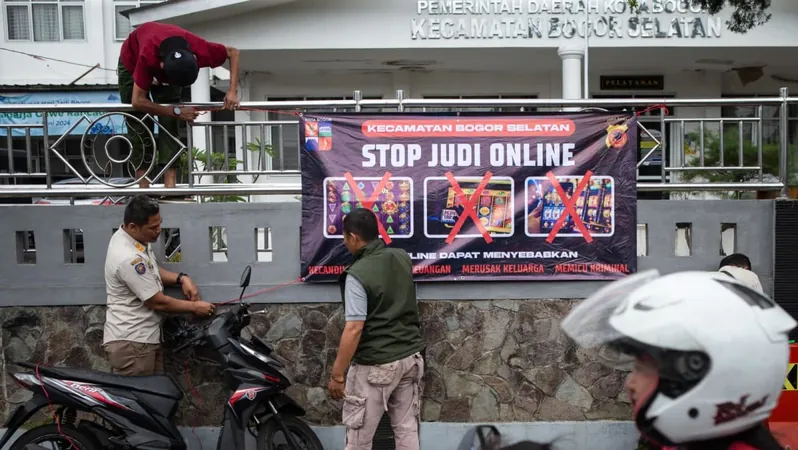
Surge in Indonesians Moving to Cambodia for High-Paying Online Gambling Jobs: Alarming Trends Unveiled
2024-12-17
Author: Ming
Surge in Indonesians Moving to Cambodia for High-Paying Online Gambling Jobs: Alarming Trends Unveiled
JAKARTA – A shocking surge in Indonesians relocating to Cambodia for employment in the booming online gambling sector has been reported, with numbers skyrocketing by an astounding 638 percent over the past three years. New data from Indonesia's foreign ministry highlights this worrying trend, raising questions about the motivations behind this mass emigration.
In 2023 alone, 17,212 Indonesians registered with their embassy in Phnom Penh, a dramatic rise from just 2,332 in 2020. This alarming increase points to a greater involvement in online fraud and gambling, according to Judha Nugraha, Director of Indonesian Citizen Protection. He emphasized during a Jakarta press conference that these figures may not reflect the complete reality, as many Indonesians appear to be working in Cambodia without informing the embassy.
Current statistics reveal that approximately 123,000 Indonesians entered Cambodia by September 2023, marking a 32 percent increase from the previous year. Yet, a significant discrepancy remains between the number of individuals officially recognized by the Cambodian government and those who have registered with the Indonesian embassy. As of now, roughly 89,000 hold residence permits in Cambodia, raising alarms among Indonesian officials about human trafficking and illegal labor practices.
Judha suggested that the lucrative job offers from online gambling operators, who often target young, unemployed Indonesians, have facilitated this trend. These advertisements often promise quick profits and attractive salaries, which many find hard to resist, leading them to take risks in a precarious job market.
"We are witnessing a normalization of the online fraud industry as a viable livelihood option," Judha stated, indicating a shift in how many Indonesians view these jobs.
This phenomenon is not new; Indonesian officials have consistently shed light on the complexity of this issue. Back in October, Judha emphasized that many Indonesians are choosing to work in these gambling companies voluntarily, thereby complicating the narrative around victimization.
The Indonesian Coordinating Minister for People’s Empowerment, Muhaimin Iskandar, added to the discourse in November, revealing that his own observations in Cambodia confirmed the presence of around 100,000 Indonesians engaged in these sectors.
In response to the troubling situation, the Indonesian government has ramped up efforts to urgently repatriate citizens believed to be victims of trafficking and exploitation in the online gambling ecosystem, particularly in Cambodia and Myanmar. Deputy Minister for the Protection of Migrant Workers, Dzulfikar Ahmadi Tawalla, stated that many individuals migrated illegally, often not revealing their situations until they are in dire need of assistance.
As the landscape of employment shifts, the Indonesian government faces mounting pressure to address the allure of illegal work overseas and the need for solid policies to protect its citizens from such hazardous circumstances. Will Indonesia succeed in combatting this alarming trend, or is a crisis brewing? As the narrative unfolds, more questions remain about the future of thousands of Indonesian workers chasing dreams in Cambodia's online gambling industry.

 Brasil (PT)
Brasil (PT)
 Canada (EN)
Canada (EN)
 Chile (ES)
Chile (ES)
 España (ES)
España (ES)
 France (FR)
France (FR)
 Hong Kong (EN)
Hong Kong (EN)
 Italia (IT)
Italia (IT)
 日本 (JA)
日本 (JA)
 Magyarország (HU)
Magyarország (HU)
 Norge (NO)
Norge (NO)
 Polska (PL)
Polska (PL)
 Schweiz (DE)
Schweiz (DE)
 Singapore (EN)
Singapore (EN)
 Sverige (SV)
Sverige (SV)
 Suomi (FI)
Suomi (FI)
 Türkiye (TR)
Türkiye (TR)